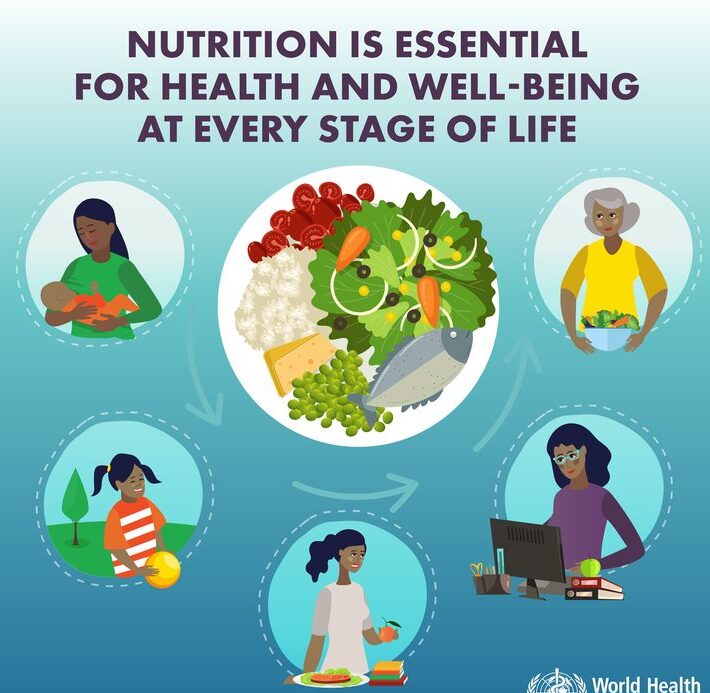Maintaining dietary health is a cornerstone of overall wellness and is essential for achieving and maintaining optimal health. A well-balanced diet provides the body with the nutrients it needs to function effectively, supporting everything from energy levels to immune function. This comprehensive guide explores the principles of dietary health, its benefits, and practical tips for making healthier food choices.
The Importance of Dietary Health
Dietary health involves consuming a variety of foods that provide essential nutrients, including carbohydrates, proteins, fats, vitamins, and minerals. These nutrients are vital for:
Energy Production: Carbohydrates, proteins, and fats supply the energy needed for daily activities and bodily functions.
Growth and Development: Nutrients like proteins, vitamins, and minerals are crucial for the growth and repair of tissues and cells.
Immune Function: A well-balanced diet supports a strong immune system, helping the body fight off infections and illnesses.
Disease Prevention: Healthy eating can reduce the risk of chronic diseases such as heart disease, diabetes, and certain cancers.
Mental Health: Proper nutrition is linked to improved mood, cognitive function, and overall mental well-being.

Components of a Healthy Diet
A healthy diet is one that includes a variety of foods in the right proportions. Here are some key components:

Fruits and Vegetables: Rich in vitamins, minerals, and antioxidants, fruits and vegetables should make up a significant portion of your diet. Aim for a colorful variety to ensure a wide range of nutrients.
Whole Grains: Whole grains like brown rice, quinoa, and whole wheat bread are excellent sources of complex carbohydrates and fiber, supporting digestive health and providing sustained energy.
Lean Proteins: Incorporate lean protein sources such as fish, poultry, beans, and nuts to support muscle growth and repair.
Healthy Fats: Include sources of healthy fats, such as avocados, olive oil, and nuts, which are essential for brain health and hormone production.
Dairy or Dairy Alternatives: Choose low-fat dairy products or fortified dairy alternatives for a good source of calcium and vitamin D.
Hydration: Stay hydrated by drinking plenty of water throughout the day. Limit sugary drinks and excessive caffeine.
Benefits of Maintaining Dietary Health
Weight Management: A balanced diet can help maintain a healthy weight, reducing the risk of obesity-related conditions.
Improved Digestion: Consuming fiber-rich foods supports a healthy digestive system and prevents constipation.
Enhanced Energy Levels: A nutritious diet provides the energy needed for daily activities and reduces fatigue.
Better Mental Clarity: Nutrients like omega-3 fatty acids and antioxidants can improve brain function and cognitive performance.
Reduced Risk of Chronic Diseases: Healthy eating habits can lower the risk of heart disease, diabetes, and certain types of cancer.
Tips for Achieving Dietary Health
Plan Your Meals: Planning meals and snacks in advance can help ensure you include a variety of foods and avoid unhealthy choices.
Practice Portion Control: Be mindful of portion sizes to prevent overeating and maintain a healthy weight.
Limit Processed Foods: Reduce consumption of processed and packaged foods, which often contain high levels of sugar, salt, and unhealthy fats.
Cook at Home: Preparing meals at home allows you to control the ingredients and make healthier choices.
Read Food Labels: Understanding food labels can help you make informed choices about the products you consume.
Listen to Your Body: Pay attention to hunger and fullness cues, and avoid eating out of boredom or stress.
Stay Consistent: Aim for consistency in your eating habits, but allow flexibility for occasional indulgences.

Adapting Dietary Health for Different Life Stages
Different life stages require specific nutritional needs:
Children and Adolescents: Focus on nutrient-dense foods to support growth and development, including plenty of calcium and iron.
Adults: Maintain a balanced diet to support energy needs and prevent chronic diseases.
Pregnant and Breastfeeding Women: Prioritize nutrients like folic acid, iron, and calcium to support fetal development and maternal health.
Older Adults: Focus on nutrient-rich foods to support bone health and prevent age-related conditions.

Common Dietary Health Myths
arbs are Bad: Carbohydrates are a necessary part of a balanced diet, providing essential energy. Focus on whole grains and complex carbs.
Fat-Free is Healthier: Healthy fats are crucial for overall health. Choose unsaturated fats and avoid trans fats.
Supplements Can Replace Food: Whole foods provide a wide range of nutrients that supplements can’t replicate. Use supplements only when necessary.
Skipping Meals Helps Lose Weight: Skipping meals can lead to overeating later and disrupt metabolism. Instead, focus on balanced meals and snacks.
Conclusion
Dietary health is a fundamental aspect of overall well-being, impacting physical, mental, and emotional health. By making informed food choices and adopting healthy eating habits, you can support your body’s needs and enjoy a vibrant, active life. Whether you are just beginning your journey towards better dietary health or looking to refine your current habits, remember that small, consistent changes can lead to significant improvements over time.

